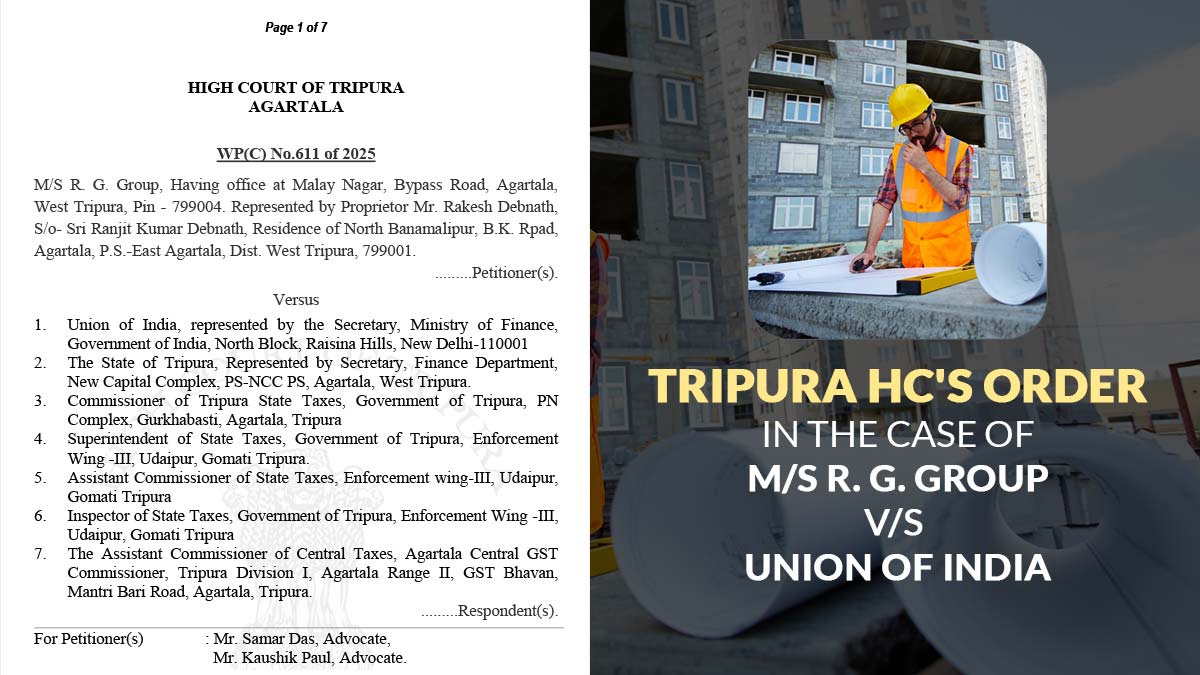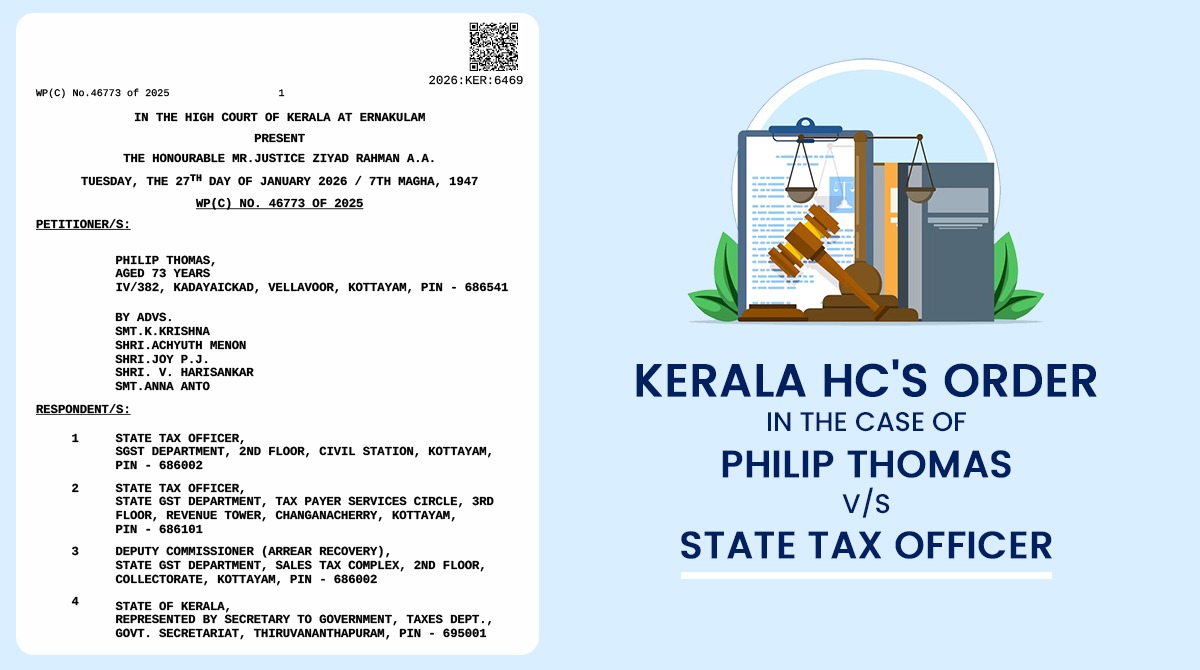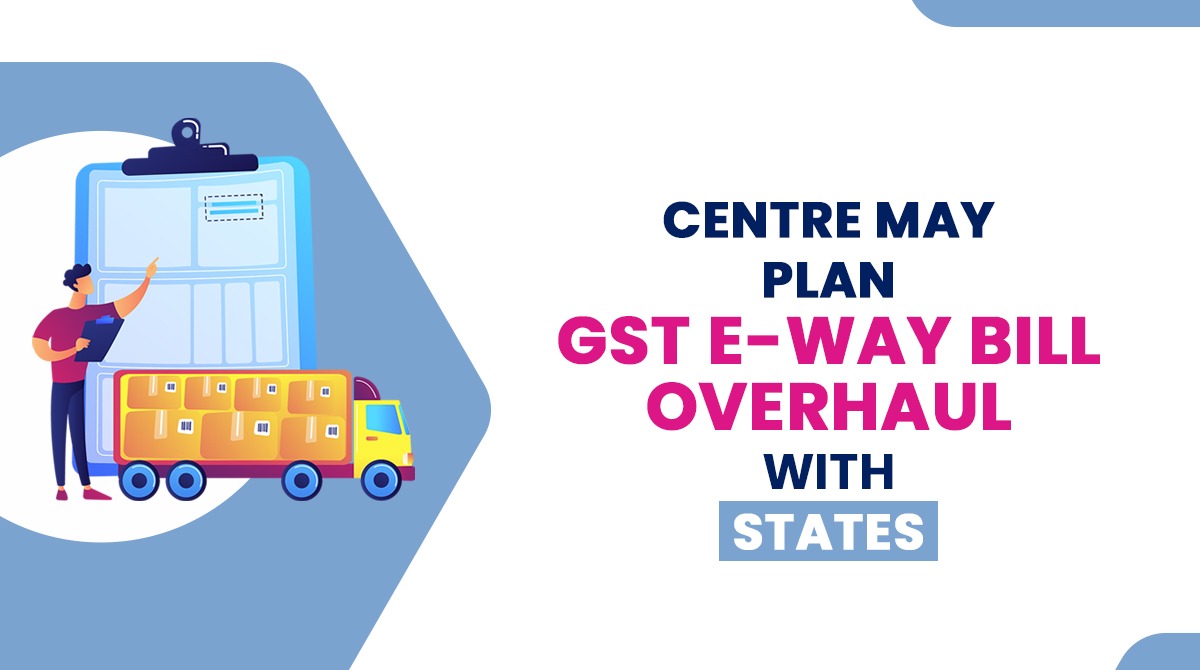
The Tripura High Court has recently clarified that a penalty paid under economic pressure cannot be considered a voluntary admission of liability. The Court further emphasised that tax authorities are still required to issue a final, well-reasoned order in accordance with the Tripura State GST Act, 2017.
A recent ruling has emerged from the case involving R G Group, a supplier of electrical goods based in Tripura. In July 2024, the company’s consignment was detained by GST enforcement officials. This action was taken due to claims of expired e-way bills and discrepancies associated with the vehicle involved in the shipment.
In an order passed on November 5, 2025, the Bench, comprising Chief Justice M.S. Ramachandra Rao and Justice S. Datta Purkayastha, said that the penalty paid via the RG Group to secure the release of its goods cannot be regarded as a voluntary acceptance of liability.
“Such a payment of penalty under economic duress cannot be treated by the respondents as a voluntary payment of penalty exonerating the respondents from passing an order as mandated by the latter part of sub-section (3) of Section 12,9 justifying imposition of penalty on the petitioner.”
The court expressed its “shock” at the revenue’s stance, highlighting that despite a statutory requirement, the Superintendent of State Taxes in Tripura had not issued any order justifying the levying of a penalty on the applicant for over 16 months.
From the facts on July 9, 2024, RG Groups’ goods were confined at Bagma, Gomati, with officials alleging expired E-Way bills and a vehicle mismatch. On July 10, a physical verification did not discover any discrepancies between the goods and invoices.
Even after this, a detention order and a Show Cause Notice (SCN) were issued demanding a penalty of Rs 4.9 lakh.
The applicant, to get immediate release of the goods and vehicle, had paid the whole amount on July 26, 2024, while asking that a final order be passed so that the penalty can be contested before the appellate authority.
The government said that as the penalty was paid, there is no need to pass a final order. The claim has been rejected by the High Court, outlining that the payment was made under economic pressure and not as a voluntary admission of obligation.
The court said that on July 26, 2024, the applicant sent a letter to the tax officer specifying that he was paying the full penalty to get his goods released and asking the officer to issue the final order so he could contest the same afterwards if required.
“On 26.7.2024, a letter (Annexure-14) was addressed by the petitioner to the respondent no.4 where the petitioner stated that he was payinghe full penalty amount in dispute and specifically requesting the said officer to pass MOV-09 order (under sub-section (3) of Section 129) within the time frame, so that he can challenge it in appeal before the appellate authority. Thus the payment of penalty was obviously made only to secure the release of goods and was under economic duress, and the petitioner clearly indicated his wish to challenge the order when passed in appeal.”
Read Also: Madras HC: Tax Officers Must Apply Sense, Not Treat GST Notice Service as Formality
The court mentioned that as the authorities do not pass a final order validating the penalty post acknowledging the representation of the applicant, the penalty collection was without legal authority and breached Articles 14, 19(1)(g), 265, and 300-A of the Constitution of India.
As per that, the High Court permitted the writ petition asking the respondents to refund the whole penalty with 9% interest from the payment date till the refund. The court awarded Rs 25,000 in costs against the responsible officer and asked the State and Commissioner of State Taxes to investigate the officer’s conduct and take disciplinary action if required.
| Case Title | M/S R. G. Group vs. Union of India |
| Case No. | WP(C) No.611 of 2025 |
| For Petitioner | Mr Samar Das and Mr Kaushik Paul |
| For Respondent | Mr P. Gautam, Mr B. Majumder, and Mr S. Choudhury |
| Tirpura High Court | Read Order |









